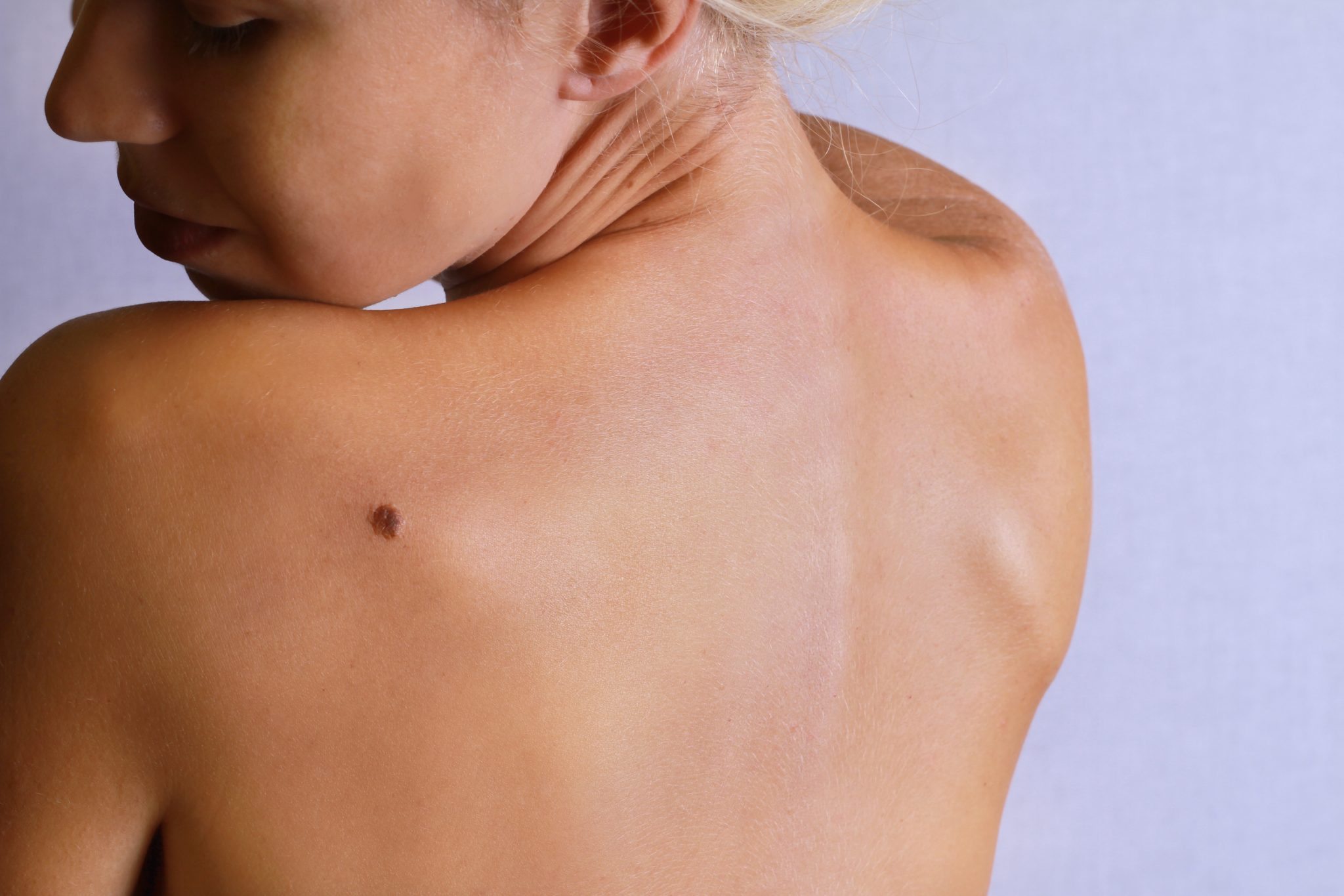Self Skin Examination is a simple technique whereby you examine your own skin at regular intervals.
This practice may help you to detect skin cancer early.
Self Skin Examination Tips:
- Choose a well-lit room or use a bright light.
- Undress entirely and check your whole skin over from top to toe.
- Involve your partner if willing; as you can not see your whole body by yourself.
- Don’t forget to look at your scalp, hands and feet, palms and soles and private areas.
- Don’t just examine your moles, but look at all the spots on your skin; in particular a spot that bleeds frequently or forms a scab often, a spot that has changed quickly, has grown quickly or just looks different to other spots may be a basal cell cancer, squamous cell cancer or other cancer.
- Examine your moles and look for the ‘ugly duckling’ – the mole that looks different to your other moles should raise a red flag.
- Apply the ABCDE rule to examining moles:
- Asymmetry
- Divide the mole into 4 quadrants
- All quadrants should appear similar
- If they do not all appear similar, raise a red flag.
- Border
- Trace the edges of the mole
- An irregular border should raise a red flag
- Colour
- More than three colours (eg black, dark brown, tan, red) raises a red flag.
- Diameter
- Many, but not all, melanomas are more than 6mm
- A mole that is more than 6mm diameter raises a red flag
- Evolution
- A changing mole raises a red flag
- Asymmetry
- If you or your partner think you have raised one or more red flags after your self skin examination, it is recommended to promptly see your general practitioner. Your general practitioner will either make a diagnosis and leave or remove this lesion or refer you to a specialist dermatologist if uncertain or concerned.
- Please also remember that many skin cancers are not very obvious to the untrained eye and if you have a past or family of skin cancer or melanoma or have any concerns, you may consider seeing your general practitioner or specialist dermatologist for a skin/mole check.
- Never self-initiate treatment of a mole or spot without consulting a qualified medical doctor.
- Perth Dermatology Clinic and Day Hospital provide fully qualified Specialist Dermatologists to perform your skin cancer and melanoma surveillance and management. All our doctors are Fellows of the Australasian College of Dermatologists.





